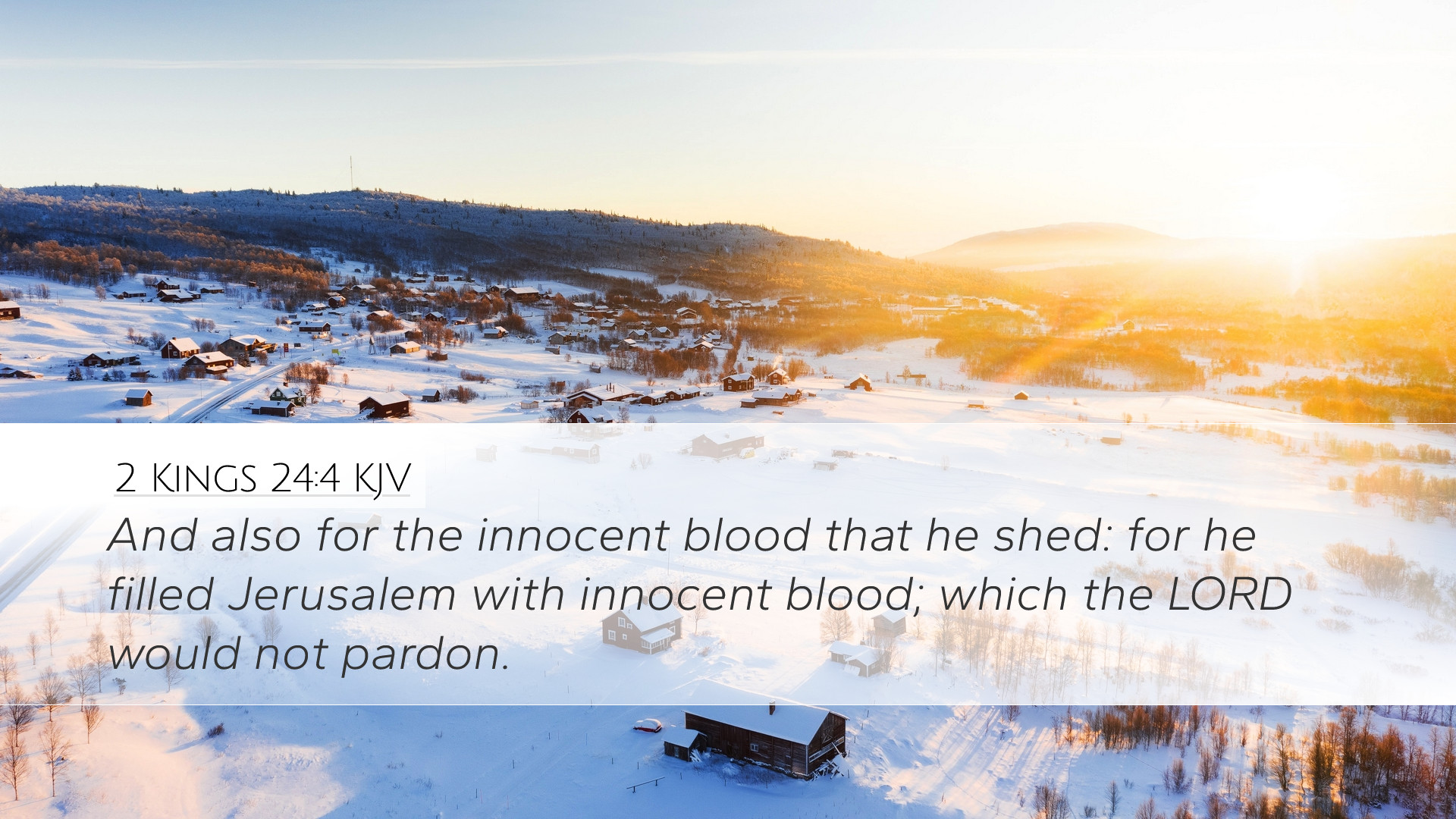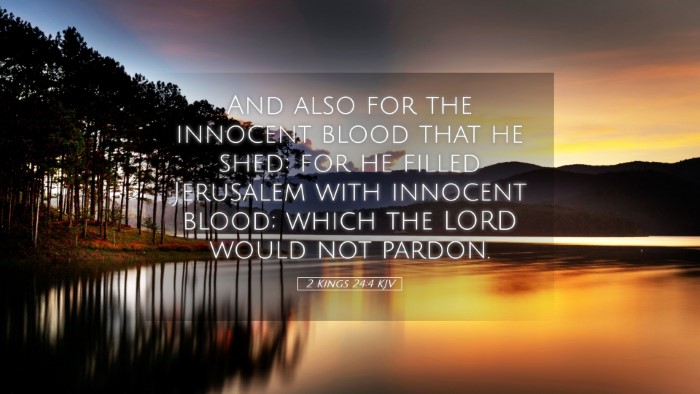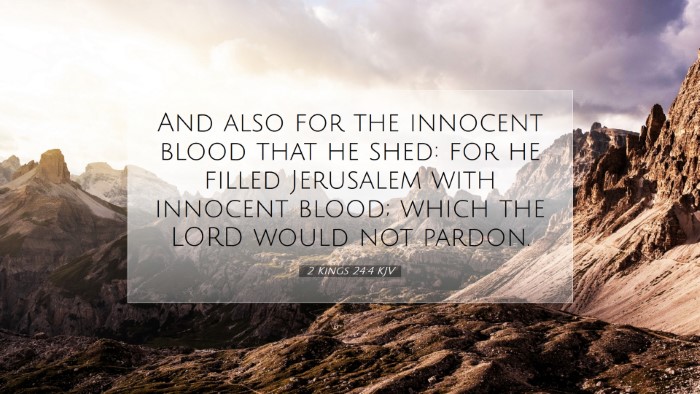Old Testament
Genesis Exodus Leviticus Numbers Deuteronomy Joshua Judges Ruth 1 Samuel 2 Samuel 1 Kings 2 Kings 1 Chronicles 2 Chronicles Ezra Nehemiah Esther Job Psalms Proverbs Ecclesiastes Song of Solomon Isaiah Jeremiah Lamentations Ezekiel Daniel Hosea Joel Amos Obadiah Jonah Micah Nahum Habakkuk Zephaniah Haggai Zechariah Malachi2 Kings 24:4
2 Kings 24:4 KJV
And also for the innocent blood that he shed: for he filled Jerusalem with innocent blood; which the LORD would not pardon.
2 Kings 24:4 Bible Commentary
Commentary on 2 Kings 24:4
Bible Verse: "And also for the innocent blood that he shed: for he filled Jerusalem with innocent blood; which the Lord would not pardon."
Introduction
The phrase "innocent blood" in this passage underscores a profound theme in scripture: the seriousness of shedding innocent blood, which invokes divine judgment. This commentary aims to explore the historical context, theological implications, and moral lessons drawn from this verse, integrating insights from public domain commentaries by Matthew Henry, Albert Barnes, and Adam Clarke.
Historical Context
2 Kings 24:4 occurs during a turbulent time in the history of Judah. King Jehoiakim ruled over a nation plagued by corruption, idolatry, and violence. The text implies that the bloodshed in Jerusalem was not merely incidental but rather a systematic oppression of the innocent, reflecting the justice system's failure and God's eventual judgment on the nation.
Commentary Insights
Matthew Henry’s Perspective
Matthew Henry emphasizes the gravity of moral corruption in leadership. He asserts that Jehoiakim's rule was marked by crimes against God's law, leading to a significant downturn in spiritual and national welfare. Henry points out that the innocent blood refers not only to the literal murder of prophets and righteous individuals but also highlights the overall spiritual decay in the nation.
Albert Barnes' Analysis
Albert Barnes discusses the concept of "innocent blood" as it relates to divine justice. He suggests that the pervasive bloodshed in Jerusalem was a consequence of a larger sinful pattern within the populace, indicating that the shedding of innocent blood calls for divine retribution. Barnes notes that this severe nature of God's judgment serves as a warning to all nations regarding the sanctity of life.
Adam Clarke’s Interpretation
Adam Clarke approaches this verse with a focus on the moral implications of shedding innocent blood. He argues that this act is profoundly detestable and that the accumulation of such sin would not go unnoticed by God. Clarke draws attention to how the societal acceptance of violence against the innocent correlates with the eventual downfall of the nation.
Theological Implications
Divine Justice and Human Accountability
This verse illustrates two vital aspects of God’s character: His justice and His mercy. The blood of innocents cries out for justice, as seen in the historical roles of prophets and righteous men who suffered at the hands of wicked rulers. It serves as a reminder that no one is beyond the reach of God's justice.
Consequences of Sin
The mention of bloodshed leads to a broader discussion on the consequences of sin. The narrative encapsulates how habitual wrongdoing can lead to societal decay. Just as Jerusalem filled with innocent blood created a void, so too does sin create spiritual barrenness within communities and individuals alike.
Lessons for Today’s Believers
Value of Life
The call to acknowledge the value of life resonates deeply in this verse. For contemporary readers, it serves as a challenge to uphold the sanctity of life in all its forms and to advocate for justice and righteousness in society.
Call to Righteous Leadership
Just as Jehoiakim's regime led to devastation, leaders today must recognize the weight of their decisions. This scripture invites leaders in both the church and society to reflect on their role in promoting justice, mercy, and truth.
Conclusion
2 Kings 24:4 compels modern readers to reflect on their responsibility towards justice and the innocent. It offers profound insights that resonate within a diverse audience, from pastors to theologians. The collective observations of Matthew Henry, Albert Barnes, and Adam Clarke come together to affirm the timeless truth that God’s heart is for justice, and His judgment is inevitable for those who shed innocent blood.


